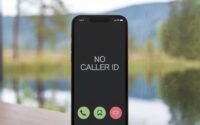Best Way to Know If Someone Is Tracking Your Phone
In an age where smartphones have become extensions of ourselves, maintaining privacy can feel like a daunting task. Just think about it—your phone holds your personal conversations, sensitive information, and even the locations you frequent. With so much at stake, it’s crucial to be aware of how vulnerable our devices can be to tracking. Whether it’s for reasons that are innocent or sinister, understanding if someone is monitoring your phone is essential for safeguarding your privacy. This guide will walk you through the various methods used to track phones and help you identify any signs that may indicate you’re being watched. Let’s dive in and explore how to know if someone is tracking your phone!
Types of Tracking Methods
Smartphones are vulnerable to various tracking methods, making it crucial to understand how they can be monitored. One common technique involves GPS tracking. This allows someone with access to pinpoint your location in real-time.
Another method is through spyware or tracking apps. These can be discreetly installed on your device without your consent, giving the tracker access to calls, messages, and data.
Cellular triangulation is also used by some services. It determines a phone’s position based on nearby cell towers. While this requires specialized equipment, it highlights the lengths one might go for surveillance.
Public Wi-Fi networks pose risks too. Hackers can intercept data over unsecured connections, potentially exposing sensitive information about where you are and what you’re doing online. Awareness of these methods is vital for maintaining control over your privacy.
Signs That Your Phone is Being Tracked
If you suspect that someone may be tracking your phone, certain signs can raise red flags. One of the most noticeable indicators is an unexpected increase in data usage. If your monthly plan suddenly balloons without any change in your habits, it might suggest that some hidden apps are sending out information.
Another telltale sign is unusual battery drainage. If your phone’s battery seems to deplete much faster than usual, it could be working overtime due to tracking software running in the background.
Look for strange behavior as well. Apps opening on their own or receiving odd messages can signal interference from a tracker.
Frequent overheating is another issue worth noting. Excess heat can indicate that unauthorized processes are draining resources and running continuously.
Keeping an eye on these signs helps maintain control over your privacy and ensures you’re not being watched without consent.
Steps to Secure Your Phone from Tracking
To secure your phone from tracking, start by updating your operating system regularly. Software updates often contain security patches that help protect against vulnerabilities.
Next, review the apps installed on your device. Delete any suspicious or unnecessary applications. Be cautious of apps requesting excessive permissions, especially for location data.
Enable two-factor authentication wherever possible. This adds an extra layer of protection to your accounts and makes it harder for unauthorized users to gain access.
Consider using a virtual private network (VPN) when connecting to public Wi-Fi networks. A VPN encrypts your internet traffic, making it difficult for anyone to monitor your online activities. ![]()
Regularly check privacy settings on social media and other platforms. Limit the information shared publicly and adjust location-sharing options according to your comfort level.
Conclusion: Protecting Your Privacy in the Digital Age
Maintaining privacy in a world dominated by technology is more crucial than ever. As our lives become increasingly intertwined with our devices, understanding the risks associated with smartphone tracking is essential. Regularly checking for signs of unauthorized access can empower you to take action before it’s too late.
Implementing security measures, such as using strong passwords and enabling two-factor authentication, can help secure your information from prying eyes. Familiarizing yourself with the capabilities of your phone’s settings allows you to control what apps have access to your data.
Remember that awareness is key. By staying informed about potential threats and recognizing the red flags indicating someone may be tracking your phone, you’re better equipped to protect yourself. Embracing vigilance not only safeguards personal information but also enhances overall peace of mind in an ever-evolving digital landscape.



